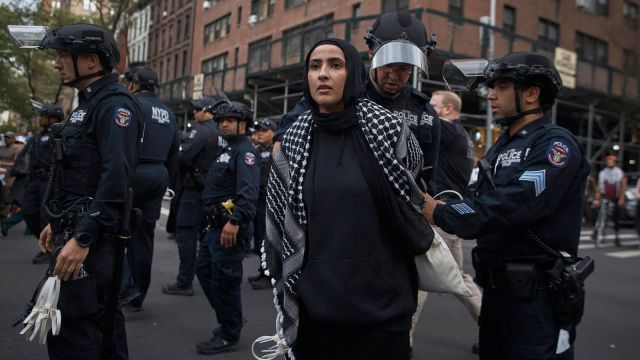
Maybe the Met Gala’s theme should have been “The Hunger Games”. Would those who attended it have got the irony then? Perhaps not, considering that barely any of the notables attending the fashion event of the year ever seem to actually pay heed to its theme. If they did, they would have realised that there are parallels between this year’s theme and the state of the world right now.
Let’s recap: The theme of this year’s Met Gala red carpet was “The Garden of Time”, inspired by a 1962 short story of the same name by J G Ballard. The story is about Count Axel and his wife — aristocrats living in a luxurious estate — who spot “an immense rabble” of the general public storming towards them. To save themselves, they use the “time flowers” in their garden, a magical plant that turns back time when you pluck it — with every pluck, they keep returning the crowd to the distant horizon. In the time they buy back for themselves, they play Bach and Mozart, lounge about their villa, and walk around dressed in black tie. Each time the crowd draws closer, Axel plucks a flower and pushes the crowd, which comes closer again, and thus it goes on. Eventually, the garden runs out of flowers, time corrects itself, and the Count and Countess turn to stone, their villa ravaged by time, so ruined that the horde of people doesn’t even stop to pay attention to it.
An irony called ‘The Garden of Time’
There is clear class commentary in the story, along with subtext about the fleeting nature of art, luxury, and the pursuit of material beauty. Most of the Met Gala attendees seem to have caught the two words in the title, “garden” and “time,” and none of the subtext. This is why we had some of the most famous people in the world dress up in flowers and vines and sand (because “sands of time,” get it?). Meanwhile, the street next to the Metropolitan Museum of Art was shut down by protesters rallying in support of Palestine.
As the crowd thronged outside, celebrities walked up the red carpet, and the shutters clicked. Some walked the carpet twice. Then the Israel Defense Forces announced that it had begun “conducting targeted strikes against Hamas terror targets in eastern Rafah in the southern Gaza Strip” — the same area where thousands of Palestinians, mostly children, had been promised safe refuge. Even the “I stand with Palestine” lapel pins that a few celebrities wore to the Oscars were nowhere in sight. Perhaps this wouldn’t have fit the theme. Or perhaps, it would have fit all too well.
The rich can buy peace even during war, can immerse themselves in luxury behind walls, can literally misuse nature and time to keep any threat to their power and position at bay. This is what the Met Gala attendees embodied. Social media is full of people comparing the situation to the Hunger Games — an accurate comparison, as the series features the rich playing dress-up while children are killed.
Art and culture in an unjust world
The irony can also be extended to the moral imperative and dilemma of those working in arts and culture today. “I actually turned down work surrounding the Met Gala because it feels so obtuse during a genocide. I don’t want to get paid to comment on this,” writer and stylist Aja Barber wrote on Threads, adding: “Sure, most of us like pretty outfits but it just feels like now is not the time.” Their post resonated with me. I like fashion, too, and I regularly write and talk about pop culture. Plus, I think fundraisers that support museums are a good thing — which is what the Met Gala is.
But it feels wrong to focus on these things when there are rallying cries right outside the steps of the venue of the Gala. One could say that life goes on and jobs have to be done. Those of us not living through a conflict can continue with our “normal” lives.
Yet, satirising such “let them eat cake” displays of wealth too seems a hollow exercise. Ask yourselves: If we are actually ironically living through the Garden of Time story, the celebrities being the aristocrats and the oppressed of the world being the approaching horde, then what are we? As we focus our attention on red carpets instead of the blood being shed elsewhere, we become the time flowers, used by the elite to keep themselves insulated from the realities of the world.
The writer specialises in pop culture and works at Stumble, the culture vertical of Kommune.
© The Indian Express Pvt Ltd
First uploaded on: 10-05-2024 at 10:17 IST


